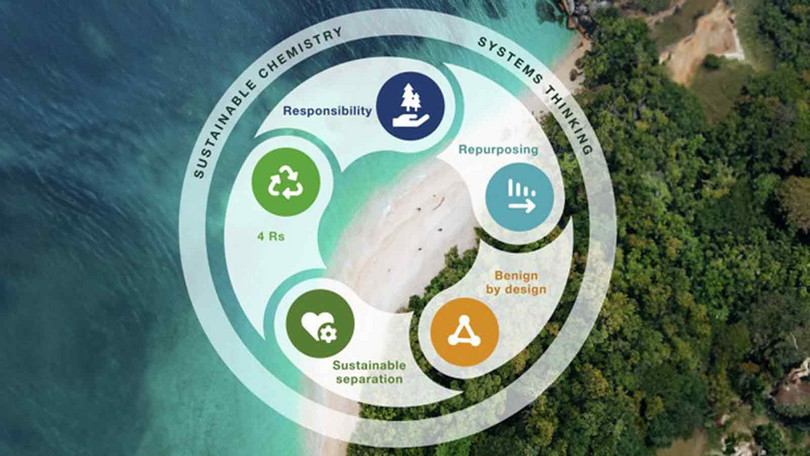Sustainable Chemistry of Renewable Organic Resources
The Professorship of Sustainable Chemistry of Renewable Organic Resources at the Institute of Sustainable Chemistry at Leuphana University Lüneburg focuses on research involving bio-based materials and related products, their flows and processes, attempting to understand and incorporate the most recent advances also from other fields, including options that do not involve chemical processes when they can potentially offer a more sustainable alternative to current products, procedures and services.
Emphasis is given to the sustainable food systems framework, based on critical thinking to generate more resilient, regenerative, and healthier structures. In this context, the research lines cover the design, development, and application of sustainable separation, especially extraction, to obtain and/or determine bioactive and other high-value compounds, from lab to larger scales, aiming at the production, distribution, consumption and management of biomass and / or agro-industrial chain “wastes”, considering the UN sustainable development goals.
As well-known, there is an urgent need for optimised and renewable organic resource use for greener and more sustainable production and processing systems worldwide. Many of the current food, beverage, nutraceutical, plant product and raw material production technologies for these sectors are responsible for various socio and environmental problems, encompassing soil and water impact, contamination at several levels and even generating an excess of biomass or other products which are called “waste“, a material culturally considered wrong in place and time.
To face such challenges and produce more inclusive, accessible and fairer, healthier food for everyone around the globe, new approaches focusing on sustainable agriculture, bioindustries and biorefineries have emerged, such as those created and developed by our research group based in Lüneburg, Germany, involving research lines such as:
- Foundation and application of Green and Sustainable Chemistry (taking into account circular economy and bioeconomy), focusing on Analytical Chemistry.
- Sustainable Separation (sample preparation, determination of compounds of interest, as well as traditional and alternative processes on different scales).
- Design, development and application of greener and more sustainable analytical methods.
- Extraction and transformation of bioactive compounds obtained from biomass.
- Determination of endogenous and exogenous compounds in complex matrices (e.g., food and environmental ones, packaging, toys).
- Case studies considering integrated aspects of the Sustainable Food and related Systems framework.
- And any other very good idea that emerges…
Regarding our teaching and outreach activities, we encompass the key elements designed and applied at Leuphana, where the sense of contemporary education crosses the boundaries of a purely subject-specific course of study, combining specific knowledge with interdisciplinary skills, qualifying our students for constantly changing demands in the world in realistic and positive ways. In doing so, topics related to green and sustainable chemistry focusing on renewable compounds are presented and discussed in our lectures, seminars laboratory sessions, and supplemented by additional exercises.
International Sustainable Chemistry Collaborative Centre (ISC3): an international institution that fosters the transition of the chemical and chemical-related sectors to Sustainable Chemistry. https://www.isc3.org/
GREEN-CHEM: a global green chemistry network supported by Ghent University that brings together experts from all over the world
https://www.ugent.be/greenchem/en
Beyond Benign: an institution that develops and disseminates green chemistry and sustainable science educational resources.
www.beyondbenign.org/people/zuin-zeidler-dr-vania/
The Alexander von Humboldt Foundation (AvH): a prestigious institution that promotes international academic cooperation between excellent scientists and scholars from Germany and from abroad. https://www.humboldt-foundation.de/en/
The International Union of Pure and Applied Chemistry (IUPAC): the world authority on chemical nomenclature and terminology, including the naming of new elements in the periodic table; on standardized methods for measurement; and on atomic weights, and many other critically-evaluated data.
https://iupac.org/member/v-zuin/




